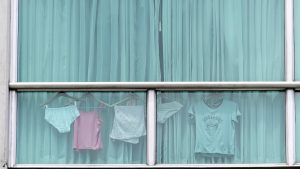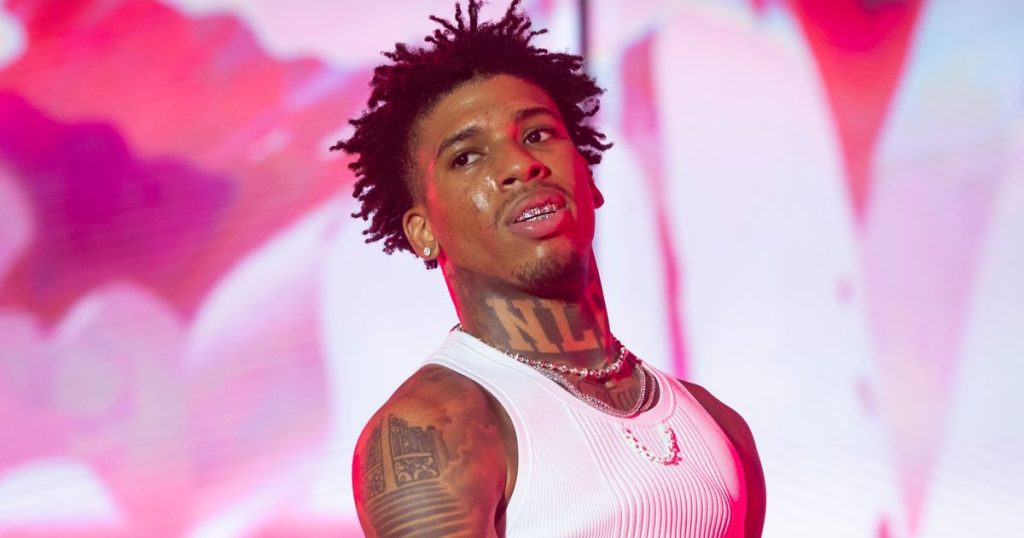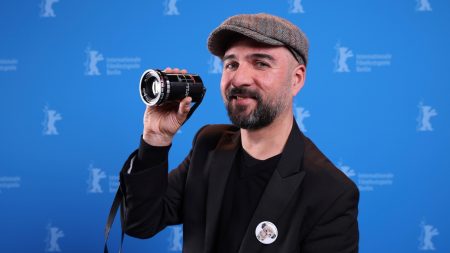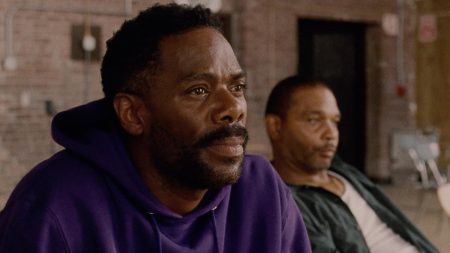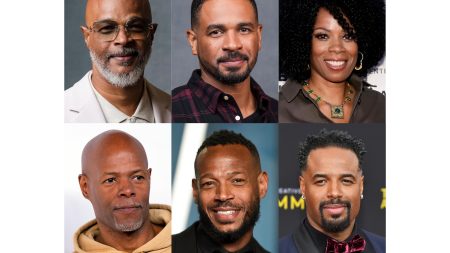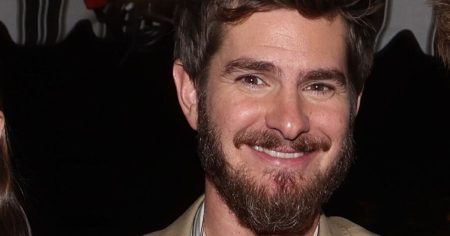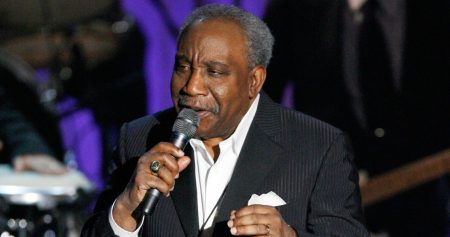NLE Choppa Defends His Expression Against Misguided Criticism
At the end of January, rapper NLE Choppa found himself responding to yet another wave of criticism, this time sparked by a photo shoot for Playgirl. A user on X accused him of “gay baiting,” a term used to describe heterosexual celebrities who allegedly pander to LGBTQ+ audiences through their styling or artistic expression. Choppa, whose real name is Bryson LaShun Potts, quickly fired back, stating, “Never been gay baiting. It’s me showing freedom. Anything now a days is called gay or it’s baiting.” He emphasized his confidence in his body and his connection to his faith, asserting, “I am a straight man comfortable in my skin, I AM.”
Choppa’s response was not just a defense of his actions but a broader critique of the limited way people view expression and sexuality. He pointed out that simply being comfortable in his own skin and showcasing his body does not equate to “gay baiting.” In a follow-up video, he addressed the specific criticisms of his Playgirl shoot, where he posed and showed a glimpse of his backside. “I can’t show a piece of my own ass without being called a name?” he asked rhetorically. Choppa has repeatedly identified as straight while also expressing support for the LGBTQ+ community, even performing at Pride events. This support, however, has led to accusations from some queer individuals who claim he is exploiting their community for attention.
The Misguided Concept of “Gay Baiting” and Its Impact
The term “gay baiting” has become a popular way to describe celebrities who embrace androgyny or flirt with queer aesthetics, often without being part of the LGBTQ+ community themselves. While the term is sometimes used to call out performers who profit from queer culture without truly advocating for or understanding it, it can also be misapplied to anyone who dares to challenge traditional gender norms. In Choppa’s case, his confidence and willingness to push boundaries in his art and fashion have led to accusations that he is somehow deceiving or pandering to LGBTQ+ audiences.
What’s particularly frustrating for Choppa, and many others like him, is the assumption that expressing himself freely must have an ulterior motive. As he pointed out, his style and confidence are not about manipulating others but about embracing his own identity and the beauty he sees in himself. This kind of confidence is often celebrated in women but policed in men, especially Black men, who are expected to adhere to rigid standards of masculinity. The constant scrutiny Choppa faces reflects a broader cultural problem: the unwillingness to accept that men, especially straight men, can embrace androgyny and still be secure in their identities.
The Cultural Context of Androgyny and Black Masculinity
NLE Choppa’s style and approach to fashion draw heavily from iconic figures like Prince and Rick James, who were known for their androgynous looks and unapologetic expression. Choppa has explicitly cited Rick James as an inspiration, mentioning the musician’s bold style in interviews. However, in today’s climate, such influences are often misinterpreted or weaponized against artists like Choppa. As singer Tank noted in a recent podcast appearance, androgyny in Black men has long been associated with confidence and success, not sexuality. “That meant you were in,” he said of icons like James, Prince, and Michael Jackson. “It didn’t mean you were gay.”
Yet, in a culture increasingly dominated by toxic masculinity and hypermasculinity, especially in hip-hop, any deviation from traditional gender norms is met with suspicion and criticism. Tank himself has faced homophobic rumors simply for advocating for LGBTQ+ rights and expressing himself authentically. This kind of backlash highlights a painful reality: Black men who challenge societal norms, whether through their music, fashion, or public statements, are often targeted with unfounded accusations about their sexuality. The underlying fear seems to be that embracing any form of queerness, even as a straight man, will somehow undermine their masculinity or threaten the status quo.
The Broader Issue of Hypermasculinity and Black Identity
The criticism leveled at NLE Choppa is part of a larger conversation about identity, hypermasculinity, and the stifling of expression in Black communities. Hypermasculinity has long been a cornerstone of mainstream hip-hop, with many rappers feeling pressured to adhere to traditional notions of manhood. This pressure is compounded by the decline of arts education and the rise of social media, which amplifies toxic behaviors like incel culture and conspiracy theories about secret agendas to “turn Black men gay.” These baseless theories have been used to attack anyone who dares to challenge conventional norms, from Prince and Rick James to modern-day artists like Choppa.
The result is a climate where even the simplest acts of self-expression, like showing confidence in one’s body or experimenting with fashion, are met with accusations of “gay baiting” or worse. As Tank noted, the constant obsession with policing Black men’s sexuality stems from a deeper cultural stigma—one that equates any form of openness or vulnerability with weakness or queerness. This stigma is not only harmful but also limiting, as it forces Black men into narrow, suffocating boxes that discourage creativity, individuality, and even basic human expression.
The Double Standard in Hip-Hop and Beyond
The hypocrisy in the way Choppa and other straight men in hip-hop are treated compared to their LGBTQ+ counterparts is staggering. While straight men like Choppa are allowed to explore androgyny and still achieve widespread success, LGBTQ+ rappers are often marginalized or excluded from mainstream recognition. This double standard is a stark reminder of the inequality that persists within the music industry and beyond. Choppa’s ability to embrace queer aesthetics while maintaining his straight identity highlights the privilege that comes with heterosexuality, even as he faces criticism for his choices.
At the same time, the backlash he experiences underscores the toxicity of modern discourse, where any form of expression that deviates from the norm is instantly weaponized. The idea that a man must conform to rigid standards of masculinity or face accusations of being “gay” is not only outdated but harmful. It discourages men from exploring their individuality and perpetuates a culture of fear and judgment. Choppa’s ability to remain steadfast in the face of these attacks is commendable, but it also raises a larger question: Why must men like him constantly defend their right to be themselves?
The Importance of Freedom and Self-Expression
At a time when genuine freedoms are being threatened in so many areas of life, it is more important than ever to advocate for the right to express oneself without fear of judgment or reprisal. NLE Choppa’s situation is a microcosm of a much larger issue—one that reflects the societal obsession with policing people’s bodies, identities, and choices. By simply existing in his truth and refusing to conform to outdated norms, Choppa challenges the status quo and invites others to do the same.
As he rightly points out, the assumption that any form of confidence or creativity must be tied to sexuality is not only limiting but also unimaginative. It reflects a world that is unwilling to embrace complexity or nuance, where every action is reduced to a simplistic label or category. Choppa’s confidence and willingness to push boundaries are not about “gay baiting” or pandering to any particular group—they are about reclaiming his own humanity and rejecting the constraints that society tries to impose.
In the end, what Choppa is asking for is not special treatment but the freedom to be himself, without his expression being constantly scrutinized or tied to his sexual identity. It is a basic human right that should be afforded to everyone, regardless of their background or orientation. As we navigate a world that often feels increasingly divided and restrictive, Choppa’s determination to remain unapologetically himself is a reminder of the power of self-expression and the importance of challenging the norms that seek to confine us.

